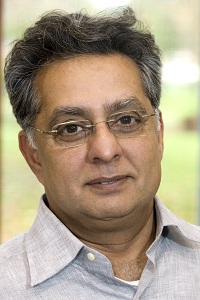Davies Challenged On Aircraft Noise
Report says that more than a million people affected
An all-party group group are claiming that Sir Howard Davies, head of the Government’s Airports Commission, has so far failed to address the ‘ANASE update study’ by leading acoustician Dr Ian Flindell.
The report suggests the number of people affected by Heathrow noise is currently around one million – four times the estimate recognised by the Davies Airports Commission.
It says the 57 decibel benchmark the aviation industry and Davies are using to measure aircraft noise impacts is flawed and severely out of date.
The metric allows the expansion lobby to claim that increasing the total number of flights would reduce the number of people annoyed by aircraft noise.
The updated ANASE report was first submitted to the Airports Commission in September last year. But Sir Howard Davies continues to rely on the old 57 decibel noise metric. He has since recommended more night flights over London and shortlisted Heathrow and Gatwick as potential sites for new runways.
At today’s launch at the House of Commons MPs challenged Davies to explain why his commission has failed to respond to this new noise evidence.
The report was commissioned by Hillingdon Council on behalf of the all-party 2M Group of councils opposed to Heathrow expansion. It is supported by London MPs and aviation campaign group HACAN led by John Stewart.
In his report Dr Flindell explains the 57 decibel benchmark Davies uses to indicate when communities become annoyed by overhead flights is based on a survey conducted in 1982 which asked people how they were affected by noise. In 32 years it has never been updated.
The ANASE study compares this research with modern-day survey results which show communities become annoyed at around a 50 decibel benchmark.
The report’s findings are supported by contemporary European noise studies and by people around Heathrow who complain bitterly about noise despite living outside of the 57 decibel contour.
The European Union and the World Health Organisation also recommend a lower noise benchmark than the one Sir Howard is using. By the time a new runway becomes operational in 2030 the survey used to assess its impact would be 48 years out of date.
An extract from Dr Flindell’s report reads: “From a purely research evidence perspective, it is surprising that UK policy-makers continue to base their understanding of numbers of people affected by aircraft noise on out-of-date, biased, non-independently-reviewed research – especially when there is available much more up-to-date evidence of UK residents’ views on aircraft noise that is consistent with all other recent and substantive pieces of research in the UK and elsewhere in Europe.
“The consequence is that policy-makers continue to presume that ‘the onset of significant annoyance’ is 57 [decibels] and that communities below this noise exposure threshold are relatively unaffected by aircraft noise – despite the fact that many such residents say that they are.”
Today’s ANASE launch was hosted by west London MP John Randall on behalf of the all-party MPs group opposed to Heathrow expansion. He said: “Sir Howard Davies now needs to explain why he shortlisted Heathrow and Gatwick for expansion based on such an out of date noise survey. He leads a commission set up to rigorously scrutinise every aspect of the airport expansion debate so why has he neglected such a fundamental concern? Our constituents deserve an explanation.”
 Leader of Wandsworth Council and spokesman for 2M Ravi Govindia said:
Leader of Wandsworth Council and spokesman for 2M Ravi Govindia said:
“We’re not saying Davies has to adopt the ANASE report or stick to a 50 decibel benchmark. But he does have to investigate a new, more rigorous noise metric with which to assess and compare the noise impacts and costs of all the airport proposals. He can’t base tomorrow’s runway decision on such out of date evidence which bares no resemblance to real-life experience.”
The first ANASE study was published in 2005 but was immediately buried by the Government of the day which was about to unveil plans for a third runway at Heathrow.
Instead the 2005 Government choose to maintain the 57 decibel metric as the official benchmark – allowing the third runway project to progress.
February 26, 2014
Related links
|
